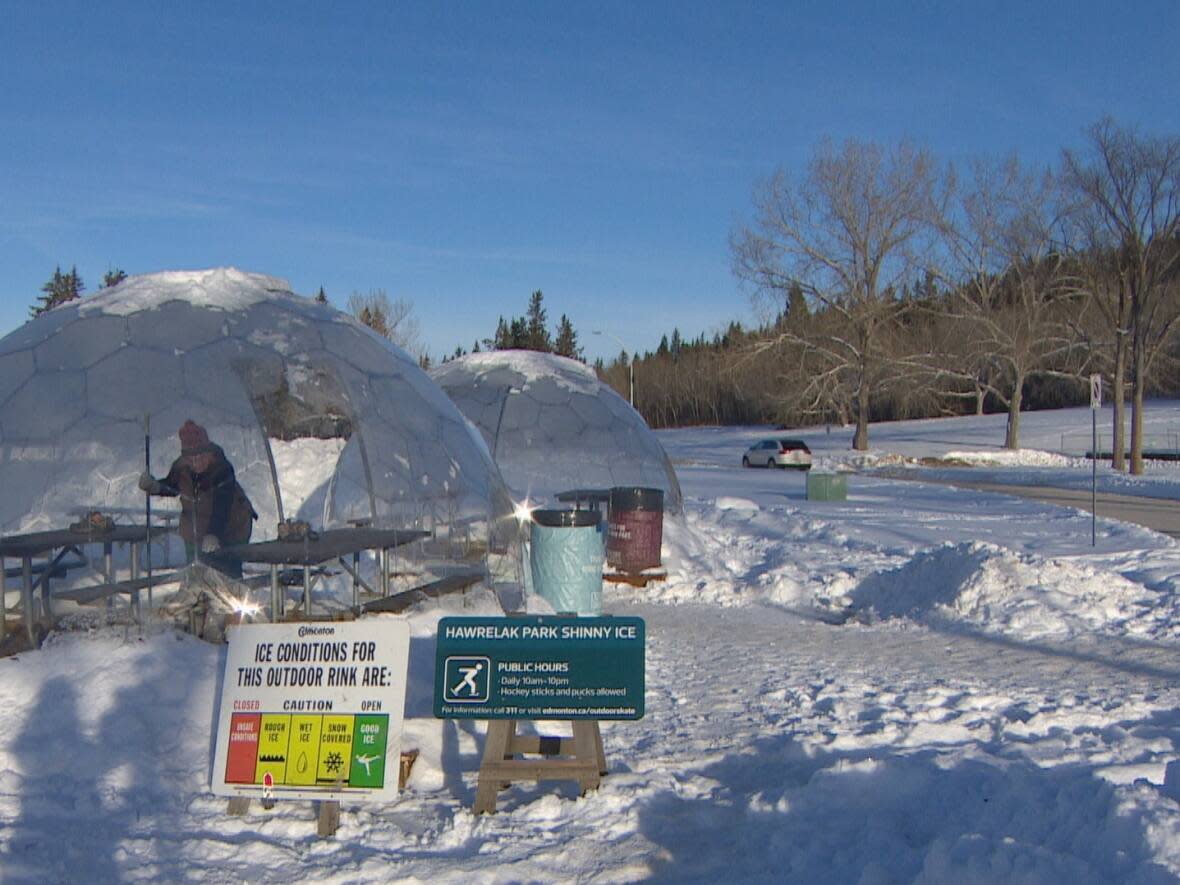City of Edmonton plans to chop 220 trees in Hawrelak Park

The City of Edmonton plans to cut down 220 mature trees in William Hawrelak Park this year to make way for extensive upgrades and additions to the 58-year-old central green space.
A portion of the park's 1,182 total trees are being removed because of the above-ground work during the three-year rehabilitation project, set to begin in March.
The city is creating a new pathway around the park and upgrading pavilions and washrooms.
Brad Watson, program manager with the city's facility infrastructure delivery branch, said other trees are being removed so crews can dig up the ground and replace the utility infrastructure — about 9.3 kilometers throughout the park.
"The utilities span the entire site, connecting the various amenities to gas, power, data, water, storm and sanitary," Watson said in an email this week. "The trees where these open excavations occur must be removed."
Watson said his team has been working with the city's arborists, who have taken inventory and assessed what needs to be cut down.
"We've walked the site, reviewed the design with them and just kind of made accommodations where we could," Watson said in an interview Thursday.
Of the 220 trees — poplar, elm, pine, maple, white spruce, blue spruce — 17 are dead or dying, the city said.
For each tree removed, a new, native species tree will be planted as part of the rehabilitation project, Watson pointed out.
Those will range in size from saplings to some older trees, the city said.
The city recently updated its website, saying the park will be closed starting March 13 and that the public can expect tree removal to start in early 2023.
News to frequent park users
The extent of the tree-cutting is a surprise to some who frequent the park.
The Silver Skate Festival that runs Feb. 10-20 will be the final event before the park closes for the three-year rehabilitation job.
Erin DiLoreto, Silver Skate's executive producer, has been working with the city for several years and was surprised to hear the tree-cutting plan.
"This number of 220 trees has left me flatfooted," DiLoreto told CBC News Friday.
"That is news to me. And in all the stakeholder engagements and meetings that I have been in, this is the first I've ever heard that kind of number."
DiLoreto said she was aware that some aging trees would need to be removed for safety reasons, particularly around the amphitheatre.
The city's website does not reflect the number of trees marked for removal.
Watson said the trees were identified in the Tree Management Plan, which is an internal, technical document "not for public, or external stakeholder engagement."
The Tree Management Plan is part of the Environmental Impact Assessment which is done for environmentally sensitive projects. It was completed in March 2022, he said in an email.
He added that the Tree Management Plan will be an ongoing process through the detailed design phase.
Watson said the closure date was decided after city council approved the 2023-2026 operating and capital budgets in December.
City council approved $127 million for the Hawrelak Park rehabilitation project of replacing the underground utilities, upgrading facilities like washrooms and building new pathways.
Some money had been previously approved for design and preliminary work, bringing the total cost of the project to nearly $134 million.
Project has 'lacked transparency': conservation group
Kristine Kowalchuk, chair of Edmonton River Valley Conservation Coalition, said she wonders when the city decided to cut 220 trees.
"This information is not on the city's website, and I don't recall hearing it in the public engagement," Kowalchuk said in an email to CBC News Friday.
"Besides problems with the tree-cutting itself, ERVCC feels the whole project has lacked transparency."
Dustin Bajer, an urban agriculture specialist in Edmonton, said it's not a surprise some trees are being removed for the project, but said it's a shame 200 healthy mature trees are part of that.
"I understand it's a city and changes happen and infrastructure gets updated and developments occur, and so naturally trees are going to come out occasionally," he said.
Mature trees are a climate change mitigation tool, he added, with more benefits to the environment than smaller ones.
"We need to ensure that we're getting more mature trees over time, and not losing them," Bajer said.


